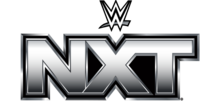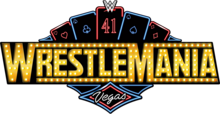"Countdown" with Mick Foley

Hardcore Legend. Former three-time WWE Champion and commentator. New York Times bestselling author. Mick Foley knows precisely who he is and what he's talking about. And he has plenty to say in his latest personal memoir, Countdown to Lockdown, available in bookstores now.
"Mrs. Foley's baby boy" pulls no punches in his latest book, grappling with topics that range from his own personal grudge match with mortality; the media's often-skewed perceptions of both the ring profession and its warriors; and the elements that ultimately prompted him to leave World Wrestling Entertainment. WWE.com's Joey Styles, who called Foley's greatest in-ring exploits at ECW, spoke personally with his longtime friend and WWE Alumnus regarding these and other subjects broached in Countdown to Lockdown.
WWE.com: So, Mick, how many personal memoirs is this with Countdown to Lockdown?
MICK FOLEY: This is number four for me. I guess I had trouble sleeping knowing that I was still tied with [Winston] Churchill after number three. I just needed one more to put me in the lead. [Laughs.]
The truth is, pro wrestling is such an incredibly vast, incredibly surreal world. There's no telling how many words could be written about the subject -- especially when the subject involves WWE.
WWE.com: That's true. And it seems like your later memoirs cover shorter, but far more detailed periods of time. Can you elaborate on that?
FOLEY: It might surprise people to know that the person who convinced me to write the third memoir -- The Hardcore Diaries -- was actually Vince McMahon. We were on the WWE jet, which I had been on only a few times; in this case, there was a bad storm due to hit New York, and Vince really wanted me to be at Raw in Greensboro, N.C., to referee a match between John Cena and Edge. During what I thought was just pleasant small talk, Vince said he was a fan of my writing style and suggested that I write another book. I thought nothing else of it until two weeks later, when I got a call from our publisher, who said, "I heard you're writing a book for us." [Laughs.]
At that point, I had to think what my subjects would be, so I started looking at some sports autobiographies that I enjoyed when I was younger. Jim Bouton covered one season in detail with Ball Four. Dick Butkus focused on a two-week period in Stop-action, and in Forty-Eight Minutes [by Bob Ryan and Terry Pluto], it was a single basketball game. I should probably add Buzz Bissinger's Three Nights in August, which turned an otherwise forgettable three-game series in the middle of a long forgotten baseball season into this mesmerizing memoir. Anyway, I thought that if I could put that same amount of detail into the surreal world of professional wrestling, I would have the type of book that big fans especially would enjoy reading.
Of Suits and Headsets
WWE.com: You mention The Hardcore Diaries and other details relating to it in a chapter called "Repackaging Mick."
FOLEY: That chapter -- which starts on page five of Countdown to Lockdown -- sets the tone regarding my decision to leave WWE. It was a difficult time for me, where I was trying my best to come back from a really bad back injury. I had been really excited about The Hardcore Diaries and its potential to do well, and about the potential to work a post-WrestleMania match with John Morrison. Unfortunately, I had the misfortune of giving the wrong wrestling promo in the wrong place at the wrong time -- that would have been Washington, D.C., after the crowd had sat through SmackDown and waited a long time for the then-live ECW show to air.
At first, I just shrugged it off as one of those things that happened; you find that when you go out there and take your swing, sometimes you make solid contact, and sometimes you miss completely. However, it was my educated guess that Vince may have seen that particular promo as a sign that I had lost my ability to connect with the fans. So, in rapid succession following a short conversation, I lost my "dress code exemption" [laughs], meaning I would have to start dressing in slacks and a sports coat. I was also told that I would need to be sent home and be "repackaged."
I remember how bizarre it felt when I mentioned this to my editor on The Hardcore Diaries, and she said, "'Don't connect with the fans'? You're No. 6 on the New York Times bestseller list!" Still, one of the great traits of Vince McMahon is that he firmly believes in going with his gut. I don't think there would be a WWE if Vince was not a gut-player. In that instance, though, I think his gut decision was not the best for me or my book. [Laughs.]
WWE.com: You mention losing your dress code privileges. I remember the corduroy sports coats; I don't remember the dress slacks and dress shoes.
FOLEY: I thought I'd meet Vince halfway and that he would appreciate the effort. The corduroy jacket became the mainstay for every single post-repackaging appearance, but if viewers look closely, they'll see the warm-up pants and possibly a pair of sneakers. Vince never said anything. I think he realized that I was doing the best I could, and that some bodies weren't meant to wear slacks. [Laughs.]
WWE.com: "A Whole New Career" may be the most interesting -- and most brutally honest -- chapter in your book, where you recall transitioning from being an in-ring competitor to a WWE commentator.
FOLEY: Vince had asked how I'd feel about announcing at the premiere party for Anamorph, a movie that his daughter-in-law Marissa had produced. To this day, I don't really know if that was something he thought about and speculated on, or if he just decided to ask me at that very moment. Like I said, Vince tends to go with his gut feeling.
My immediate comment was, "I don't know, Vince. I've heard about you on those headsets." He laughed it off and said, "Actually, I'm getting better at that." All I can say is, if what I heard represented "getting better," then I truly feel for the announcers who had Vince produce them before he got better. [Laughs.]
WWE.com: You really go into detail as to how things degenerated from there, but you don't do it in a nasty way; you're just very honest and offer a lot of insight as to what it's like to be at that announce table. Which leads us to the chapter called "The Magic Headsets" …
FOLEY: Yes, the headsets were magic because the moment you put them on, all the respect you thought you had earned seemed to disappear. [Laughs.] I like that chapter, and I think anyone who reads it will find themselves laughing. My wife enjoyed it because she thought I was getting my feelings out without being bitter.
WWE.com: You wrote the chapter in a fictionalized, imaginary setting and give Vince a special name.
FOLEY: Yes, Mr. McMahon may or may not be the inspiration behind "Mr. McMagical" [laughs], and I was "McFoley." Writing the chapter in a fantasy world of dragon slayers, princes and sires was my way of dealing with the most difficult time of my WWE stay without really becoming bitter or angry about it. Readers sometimes equate honesty with anger, so if they're looking for anger about my WWE years in Countdown to Lockdown, they're probably going to be disappointed. If they're looking for honesty, I think they'll really enjoy it.
WWE.com: When you look back at those days now, would you say that the attitude that Vince relayed through the "magic headsets" had nothing to do with the people on the other end, and was reflective more on that position?
FOLEY: Yes, I have come to believe that. But I tell you, it's tough to feel that way when you're actually sitting at the table, wearing those magic headsets. If I had stayed in that position, I think I would feel extremely angry and bitter toward WWE. Instead, I believe I left at the right time, while I still had so many positive feelings. Looking back on those days makes me laugh now, because it was so surreal.
WWE.com: You also mention in your book, though, that when you finished with WWE and did your last call on commentary with Jim Ross, Vince complimented you.
FOLEY: That was my last pay-per-view -- Triple H versus Edge at The Great American Bash 2008. I did another few weeks [on SmackDown], until Edge Speared me through a table. Vince did give me a lot of compliments and made it clear that he liked much of my announcing. During the most contentious conversation of our relationship -- which is a part of Countdown to Lockdown that I think readers will find really fascinating -- he said that my call on the match with J.R. at The Great American Bash was as good as any that he'd ever heard. I thanked him and said, "Vince, the problem is that I really don't know the difference anymore."
For me, announcing wasn't the ideal working condition. However, if viewers were to go back and watch some of those big calls -- Edge and Triple H, Edge and The Undertaker's Tables, Ladders and Chairs Match [at One Night Stand 2008], Shawn Michaels against Batista [at Backlash 2008] -- I hope those matches provide some kind of testament that I did a good job on occasion.
WWE.com: Just to get this out there -- because it is so surreal -- you no longer work for WWE. A professional conflict with Vince McMahon is the reason you're no longer with WWE. And who was it that offered you the opportunity to promote Countdown to Lockdown on WWE.com?
FOLEY: From what I understand, it was Vince McMahon's decision to mention the book on Raw, and it was his decision to offer me the opportunity to talk to WWE.com. It is literally among the craziest things I've ever heard of. [Laughs.] I think it's unprecedented, and it has a lot of people talking. And I'm flattered to do this. I think it shows what kind of respect Vince has for me and, deep down, he genuinely likes me and appreciates what I did when I was with the company.
WWE Shows Latest Results
Raw results, April 21, 2025: Seth Rollins, Bron Breakker and Paul Heyman align to brutalize Roman Reigns and CM Punk
Full ResultsSmackDown results, April 25, 2025: The Street Profits emerge victorious in awesome WWE Tag Team Title Triple Threat TLC Match
Full ResultsWWE NXT results, April 22, 2025: Stephanie Vaquer retains the NXT Women's Title against Roxanne Perez
Full Results



--6fff81180d78f5d9bb7613f28576792d.jpg)


--de3612b9543981440a24489e0e568d9b.png)





